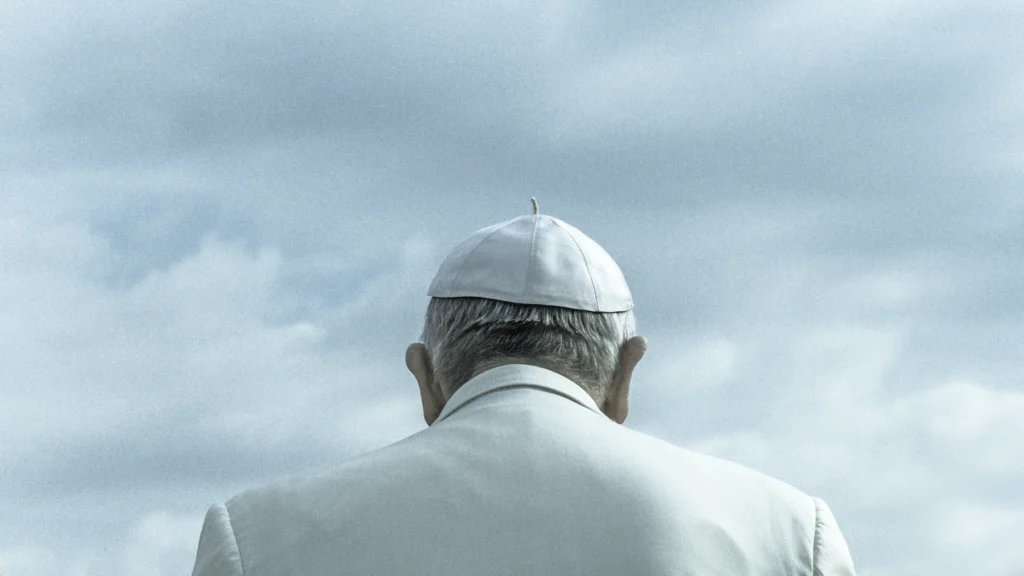
Published May 24, 2023
In a recent article on the social doctrine of John Paul II in the Jesuit journal La Civiltà Cattolica, Fr. Fernando de la Iglesia Viguiristi, S.J., had this to say about one facet of John Paul’s epic 1991 encyclical, Centesimus Annus:
To the key question, “After the collapse of communism, is capitalism the only alternative left?” Wojtyła [i.e., John Paul II] replied, “If by ‘capitalism’ is meant a system in which freedom in the economic sector is not circumscribed within a strong juridical framework which places it at the service of human freedom in its totality, and which sees it as a particular aspect of that freedom, the core of which is ethical and religious, then the reply is certainly negative” (CA 42).
Fair enough; that’s an accurate quote. But why did the professor of international economics at the Pontifical Gregorian University omit the sentence immediately before that negative judgment, to wit:
If by “capitalism” is meant an economic system which recognizes the fundamental and positive role of business, the market, private property and the resulting responsibility for the means of production, as well as free human creativity in the economic sector, then the answer is certainly in the affirmative, even though it would perhaps be more appropriate to speak of a “business economy,” “market economy” or simply “free economy.”
I completely agree with the late pope that “free economy” is the better term here, and not only because the word “capitalism” evidently causes European academics to break out into hives.
A free economy—one in which the market, not the state, is the dominant actor in economic life—is one of the three interlocking sectors of the free and virtuous society of the future that John Paul II outlined in Centesimus Annus, the other two being a democratic polity and a vibrant public moral culture. In John Paul’s view, both the democratic political community and the public moral culture were essential in tempering and directing the tremendous energies that free economies let loose, so that those energies serve individual human flourishing and social solidarity. The democratic polity does that by devising a legal and regulatory framework for the free economy, one that rewards honesty and creativity and punishes corruption. The public moral culture (which the Church helps shape) does that by helping form a citizenry which understands that some appetites are not to be indulged, because they harm individuals and destroy the virtues necessary to live freedom—including economic freedom—nobly.
Given twenty-first-century economic and political realities, the issue is not choosing between a market-centered economy and the socialist fantasy that continues to seduce intellectuals. The real issue is the degree of regulation that should frame the activities of the free economy, on everything from minimum wages to pornography to carbon emissions to the development of artificial intelligence. The debate over the proper legal regulation of the economy is ongoing, as it should be. Right now, it’s quite heated, and the players in that drama include not just old-style liberals and conservatives, but populists and “national conservatives” who are unhappy with free trade and seem smitten by national industrial policies of the sort favored by social democrats and others on the left.
This ongoing debate can take two important lessons from Centesimus Annus, I suggest.
The first has to do with the nature of wealth in a post-industrial world, and the implications of that for economic justice. If wealth today is created primarily by economic imagination and entrepreneurial skills working through disciplined and expanding networks of production and exchange, then the prime imperative of justice in the economy is the inclusion of as many people as possible in those networks—which means anti-poverty programs committed to the empowerment of the poor. In a U.S. Catholic context, that twenty-first-century economic reality underscores the fact that the most effective of the Church’s anti-poverty programs are our inner-city schools, the survival of which is a moral and social imperative.
The second lesson is related to the first and touches the sharply debated question of “globalization.” No doubt globalization has had adverse consequences for some Americans; it has also helped lift as many as two billion people out of abject poverty. Living the social-ethical virtue of solidarity, so stressed by John Paul II, would seem to mean addressing those two facts of twenty-first-century economic life together, not setting them against each other in a nationalistic, zero-sum game of beggar-thy-neighbor.
The question of “how,” I leave to the economists. The principle is what the Church should address.
George Weigel is Distinguished Senior Fellow of Washington, D.C.’s Ethics and Public Policy Center, where he holds the William E. Simon Chair in Catholic Studies.
Picture from Unsplash
George Weigel, Distinguished Senior Fellow of the Ethics and Public Policy Center, is a Catholic theologian and one of America’s leading public intellectuals. He holds EPPC’s William E. Simon Chair in Catholic Studies.











